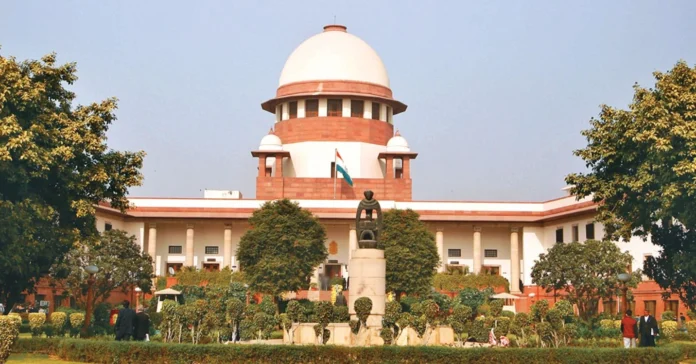Gitanjali J. Angmo, the wife of noted Ladakh-based environmentalist and education reformer Sonam Wangchuk, has filed an amended petition before the Supreme Court challenging his detention under the National Security Act, 1980 (NSA). She has alleged that the detention is a deliberate attempt to suppress dissent and punish Wangchuk for his peaceful activism and advocacy for Ladakh’s constitutional rights.
In her amended plea, Angmo contends that the detention order was issued not for any genuine security concern but as part of a broader political vendetta. She stated that the series of government actions against Wangchuk including the cancellation of his NGO’s Foreign Contribution (Regulation) Act (FCRA) licence, the revocation of a land lease, the initiation of a CBI probe, and Income Tax Department summons collectively demonstrate a pattern of harassment.
These actions, she pointed out, began around the time of the Lok Sabha elections and just before the final rounds of discussions between the Apex Body of Leh (ABL) and the Ministry of Home Affairs (MHA) regarding Ladakh’s autonomy.
Angmo’s petition highlights that five FIRs were cited by authorities as justification for the NSA detention. However, three of them contain no allegations against Wangchuk, while two others are against unknown persons.
Only one FIR directly names him, and that case is unrelated to the incidents of violence in Leh. She also noted that the September 24 clashes in which four people died and nearly 90 were injured have been wrongly linked to him without substantive evidence.
According to the plea, the detention order fails to establish any direct or rational connection between Wangchuk’s public activities and the alleged disturbances in Ladakh. Angmo argued that the authorities are attempting to criminalize peaceful activism and that Wangchuk’s speeches and campaigns have consistently upheld constitutional values. She rejected the government’s claim that he called for independence or separate statehood for Ladakh, emphasizing that his demands focused solely on inclusion under the Sixth Schedule of the Indian Constitution a provision that ensures greater local autonomy for tribal and environmentally sensitive regions.
Angmo also reminded the Court of Wangchuk’s contributions to the nation, including his innovations in sustainable technology, such as solar-heated shelters for Indian soldiers stationed at high altitudes. She asserted that these contributions reflect his commitment to India’s development and national interests, contradicting the narrative that he poses a security threat.
The Supreme Court bench comprising Justice Aravind Kumar and Justice N.V. Anjaria allowed Angmo to formally amend her petition and include these new facts. The Court directed her to file the updated petition within one week and instructed the Union government to file its response within ten days thereafter. The matter has been listed for hearing on November 24.
The case raises significant questions about the use of preventive detention laws like the NSA against activists and dissenters. It also highlights the tension between the state’s security concerns and the constitutional right to free speech and peaceful protest.


